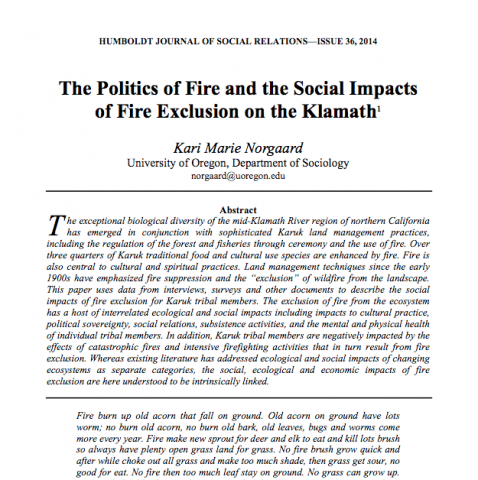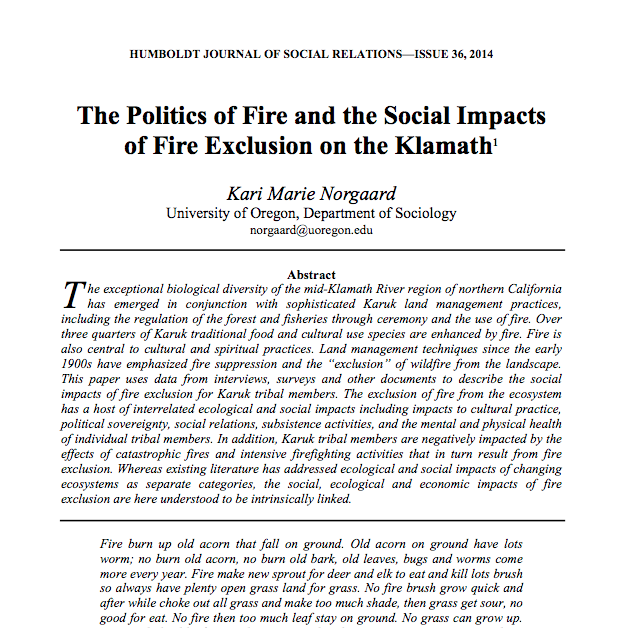The Politics of Fire and the Social Impacts of Fire Exclusion on the Klamath
Abstract: The exceptional biological diversity of the mid-Klamath River region of northern California has emerged in conjunction with sophisticated Karuk land management practices, including the regulation of the forest and fisheries through ceremony and the use of fire. Over three quarters of Karuk traditional food and cultural use species are enhanced by fire. Fire is also central to cultural and spiritual practices. Land management techniques since the early 1900s have emphasized fire suppression and the "exclusion" of wildfire from the landscape. This paper uses data from interviews, surveys and other documents to describe the social impacts of fire exclusion for Karuk tribal members. The exclusion of fire from the ecosystem has a host of interrelated ecological and social impacts including impacts to cultural practice, political sovereignty, social relations, subsistence activities, and the mental and physical health of individual tribal members. In addition, Karuk tribal members are negatively impacted by the effects of catastrophic fires and intensive firefighting activities that in turn result from fire exclusion. Whereas existing literature has addressed ecological and social impacts of changing ecosystems as separate categories, the social, ecological and economic impacts of fire exclusion are here understood to be intrinsically linked. Provenance: Contributed to Sipnuuk Food Security Collection by Sara Reid, Staff Research Associate at UC Berkeley, in association with her work with Jennifer Sowerwine coordinating Objective 8. Klamath Basin Food System/Sovereignty Assessment in the AFRI grant.


